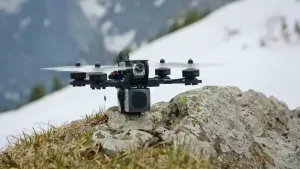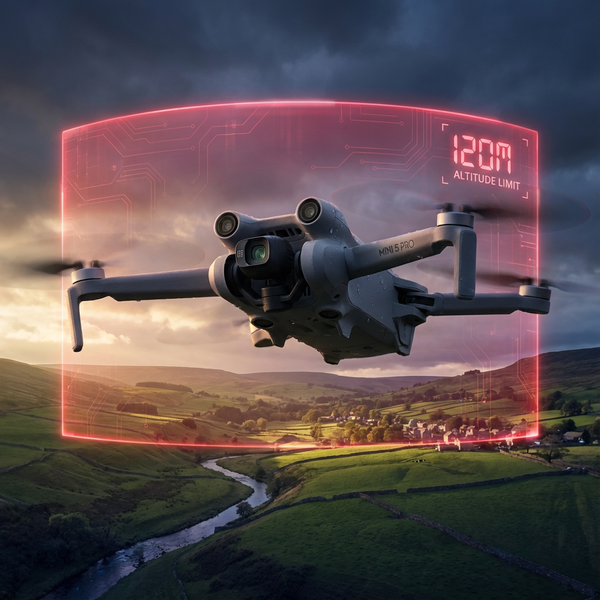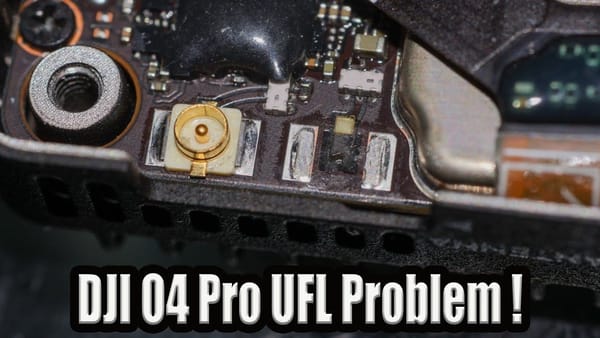
Trying to buy a DJI drone in the US lately? Good luck. The shelves are emptier than a server room after a ransomware attack. But it’s not because DJI is banned—yet. This is a story about customs, audits, and a looming ban that might finally ground the Chinese drone giant.
TL;DR
- DJI products aren’t banned in the US—just stuck in customs due to the Uighur Forced Labor Protection Act.
- Stock shortages and service delays stem from imports being held at ports, not an official ban.
- A looming government audit could ban DJI outright by the end of 2025 if they fail or ignore it.
- DJI’s refusal to open up US manufacturing and software transparency is largely to blame.
- The ban could reshape the US drone market, but importing DJI gear independently might still be possible.
Why You Can’t Buy DJI Drones in the US Right Now
Despite what you might think, DJI drones aren’t officially banned in the US. The company can sell products freely—if only they could get them into the country. The problem? Customs. DJI’s shipments are being held up under the Uighur Forced Labor Prevention Act, a law aimed at stopping products linked to forced labor in China’s Xinjiang region.

DJI insists they don’t manufacture or source anything from Xinjiang. They’ve posted detailed rebuttals on their blog, but Customs and Border Protection is still holding shipments without official documentation or public explanation. This “under the table” blockade means US retailers have little to no stock, and consumers can’t even get warranty repairs efficiently. Products get stuck both coming in and going out for servicing.
Tariffs? They exist but aren’t the root cause of the supply freeze. Tariffs mostly hit consumers trying to bring repaired drones back into the US, adding surprise bills. The real bottleneck is Customs refusing entry based on forced labor concerns, not tariffs or an explicit ban.
The Audit That Could Ground DJI for Good
Here’s where it gets serious. The US Defense Bill from last year mandates a security audit of DJI and competitor Autel Robotics. The goal: assess if their surveillance and video equipment pose a national security risk. This audit must happen by the end of 2025.

If DJI fails or ignores the audit, they’ll be slapped onto the FCC’s coveted list—a blacklist that bans their products from US sales entirely. This is the nuclear option, distinct from today’s import delays. The FCC ban would be official and market-wide. Worse, DJI is struggling to get any US government agency to even talk to them about the audit. Bloomberg reports DJI reps are being ignored, making the looming deadline a ticking time bomb.

Adding insult to injury, the US President signed an executive order in June creating a foreign entities list targeting Chinese drones, putting DJI in a vice grip from multiple fronts. If DJI doesn’t get audited or fails, they face a full ban by the end of 2025. If the government continues ignoring DJI, the ban kicks in automatically.
Lobbying and Who’s Really to Blame
Some DJI supporters blame “anti-DJI lobbying” from rivals like Skydio for the mess. That’s a convenient scapegoat but not the full story. DJI themselves have been heavy lobbyists in the US—so they brought some of this on themselves. Their attempts to placate critics with features like NFCs and “local data mode” were half-measures, designed to delay the inevitable rather than solve the core issues.
The real problem lies in DJI’s stubborn refusal to open US manufacturing or provide a fully auditable software stack for their enterprise drones. Everything funnels through China, with tight control and opaque software activation. This lack of transparency and cooperation on enterprise products has poisoned DJI’s standing with the US government more than consumer products ever could.
Even insiders who tried to push DJI toward US cooperation have left, frustrated by the company’s rigid approach. The consequence? DJI is caught in a tightening noose, and the road to a full ban looks all but certain.
Personal Take: DJI’s Future Looks Grim
Here’s the blunt truth: DJI is probably screwed. The supply issues today stem from import blocks tied to the Uighur allegations—despite no public evidence linking DJI to forced labor. This looks like a convenient excuse to stall shipments until the end of the year.
The real hammer drops in 2025 with that audit deadline. DJI currently can’t even get the US government to answer the phone. The law says: no audit, automatic ban. I expect that’s exactly what will happen—a silent ban by bureaucratic neglect.
That said, DJI makes some of the best drones on the planet. Their consumer products are excellent, even if the company’s behaviour is sometimes questionable. I don’t think they should be banned for that alone. But politics and economics don’t care about your opinion.
When the ban hits, the US drone market will shift dramatically—not just in FPV but across all consumer and enterprise segments. You might still import DJI gear yourself, but official channels will dry up, making life harder for enthusiasts and professionals alike.
Takeaway Box
- DJI drones aren’t banned yet—they’re stuck in customs under forced labor import rules.
- Warranty repairs are a nightmare since products can’t be re-imported without tariffs and delays.
- A government audit by the end of 2025 will decide if DJI is officially banned in the US.
- DJI’s refusal to open US manufacturing and software transparency is their own undoing.
- The FCC ban could come by bureaucratic silence, not a dramatic court ruling.
This article was based from the video Why Cant You Buy DJI Drones In The USA - DJI Ban The Unbiased Truth!







